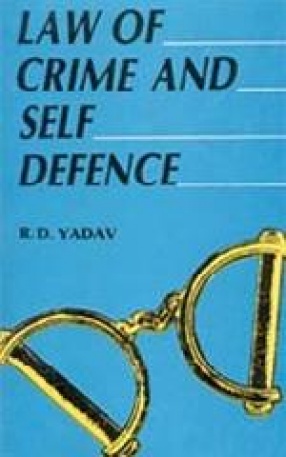In fact, the law of self-defence has developed on the basis of instinct of self-preservation, which is common to all living creastures. It is founded on necessity and is not superseded by the law of state, though it has been curtailed to certain extent. The theory of self-defence not only partakes of the individualistic thinking but also assumes a social character and, therefore, forms part of social justice, as the defendant in the exercise of this right, one on the hand, defends his own interest and on the other preserves public peace. Use of force in the exercise of right of self-defence is justified on two grounds I,e the injustice of the attack and the presence of danger. Although in a democratic society, state enjoys monopoly of force against the wrong –doer, under certain circumstances, the defendant is also allowed to use reasonable force to protect person and property, if state-help is not available. Social awareness and public opinion on the law and practice of the right of self=defence was ascertained though a questionnaire and the findings have been analysed and given due place in the book. This is a novel features of the treatise. It is written in a simple and lucid style which keeps the interest of reader alive. It is likely to benefit the judge, the advocates and the law teachers and students alike.
Law of Crime and Self Defence
by R.D. Yadav
$10.80
$12.00
In stock
Free & Quick Delivery Worldwide
All orders amounting to US$ 50 or more qualify for Free Delivery Worldwide. For orders less than US$ 50, we offer Standard Delivery at $14 per book.
ABOUT THE AUTHOR R.D. Yadav
Dr. R.D. Yadav (b. 1936) after obtaining the LL.M. Degree from the Lucknow University, chose to be a teacher and joined the Banaras Hindu, University . In 1973, he joined theJai Narain Degree College, an associated college of the Lucknow University as a Lecturer in law. He went to London in 1975 where he worked as a research scholar at the University of London for thefull term. During the academic year 1979-80, he joined the Osgoode Half Law School of the york University t Toronto, Canada and offered courses in jourisprudence and Legal Education for the completion of D.Jur.Degree. After returning to India, he was instrumental in the establishment of Gandhi Degree college at Sidhauli, sitapur of which he became founder-principal. He was awarded Ph.d. Degree in Law by the kurukshetra University. He has specilised in Criminal law and Criminology. He published a scholarly book on legal philosophy, Glimpses of jurisprudence and contributed several articles in Law Journals. He has participated innumerous legal conferences and symposia, in India and abroad. He has been teaching for almost two decades now and is currently serving as reader in Law in the J>N> Degree College, Lucknow University. He has also served on the editiorial board of the Law Review’ published by the college..
reviews
0 in total
Review by Anonymous
Be the first to review “Law of Crime and Self Defence” Cancel reply
You must be logged in to post a review.
Bibliographic information
Title
Law of Crime and Self Defence
Author
Edition
1st ed.
Publisher
ISBN
8170995140
Length
xiv+420p., Appendices; Bibliography; Index; 22cm.
Subjects





There are no reviews yet.